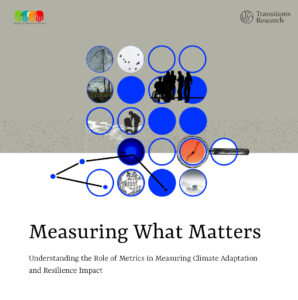“We are what we eat.” If the food we eat reflects our values and tastes, so, too, does the food we waste. The United Nations Environment Programme estimates that India wastes 74 million tonnes of food each year, representing a loss of 92,000 crore rupees, and securing India second rank (after China) on a list that no nation should want to top. This quantum of food wastage represents 22% of our total food production, and 8% of total global food wastage. The food we waste paints a less-than-rosy picture of who we are as a nation.
Food waste has grave implications for hunger and climate change. India ranks very high on the Global Hunger Index, with 14% of Indians undernourished. The coexistence of massive undernourishment and massive food wastage in India speaks to widening socioeconomic gulfs, which should itself urge us to take action for a more equitable food economy. When we waste food, we waste all the resources of land, water, chemical inputs, labour, time, and greenhouse gas emissions that went towards producing that food. Also, rotting food in landfills emits methane, a greenhouse gas 80 times more potent than carbon dioxide. Globally, food waste accounts for 6-8% of all anthropogenic emissions of greenhouse gases.
Retailers and restaurants account for only modest shares of food waste. 61% of our national food waste occurs in households, equivalent to a whopping 55 kilograms of food wasted per person per year.
Clearly, food waste is one area where blaming “Big Business” and “the Government” is not just unhelpful but inaccurate. Households in Indian cities must play a key role in minimising food waste.
Key factors in household food waste
Research conducted by Ashoka University’s Centre for Social and Behaviour Change illuminates food waste in Indian households. Key factors include:
- Buying food in bulk to avail of retailer discounts.
- Impulse buying.
- Difficulty with meal planning, which often leads to overestimating how much food should be cooked.
- Cultural perceptions whereby serving excess food, especially to children and guests, is preferable to risking shortages.
- Perceiving small amounts of food wastage as inevitable. In many Indian households, excess food is put out for stray dogs or cows, which is perceived as a kind act, but which also creates problems of public hygiene. In other words, we sometimes fail to see food waste as a problem that needs solving.
- Conflicting beliefs about proper food-storing techniques, including how long different foods can be safely stored.
- Perceptions that processed foods are nutritionally inferior. Overall, this perception – which is, however, changing now, as our diets become globalised – favours both health and the environment. Many processed foods do lack micronutrients and contain a surfeit of salt, fat, and sugar, as well as being resource-intensive to process and package. But a rigid opposition to processed foods also rules out some healthy options. For instance, frozen fruit and vegetables may retain more of their micronutrient content than fresh foods by the time they reach the consumer. Also, given the far longer shelf lives of frozen or tinned foods, these are associated with less food waste than fresh foods. A blanket aversion to processed foods can thus, in some cases, lead to food waste via the spoilage of perishable fresh foods.
Also implicated in household food waste is an aversion to eating refrigerated food, based on perceptions that food that’s been in the fridge is somehow ‘stale.’ These ideas may be linked to old Hindu proscriptions, and would have historically been valid in a hot, humid country. But these perceptions are outdated today, when over 60% of Indian households own a refrigerator, and when correctly refrigerated or frozen foods can last days, weeks, or months. Given that refrigeration allows large-batch cooking (which in turn saves fuel and time), an aversion to refrigeration is wasteful, not just of food, but of female household labour – as The Great Indian Kitchen (2021) beautifully illustrates.
Rigid adherence to use-by dates on foods, combined with the aforementioned bulk and impulse buying, also contributes to household food waste. Environmental advocates are calling for the abolition of printing food expiration dates, which are in many cases meaningless, or refer to food quality rather than safety.
Households also play a role in food wasted in the retail chain. Our Indian obsession with appearances, shamefully paraded in Matrimonials sections, extends to our food. Our insistence on good-looking food leads to colossal waste of misshapen fruit and vegetables. Retailers regularly dump truckloads of perfectly edible but visually unappealing produce.
How Households can minimise food waste
The good news? Indian households are growing increasingly concerned about food waste, with world hunger and climate change being cited as major reasons for worry. Households and housing societies in Indian cities are uniting to combat food waste. By partnering with local food banks, households can donate excess food, still in edible condition, to charitable organisations. This list of food banks across India may be helpful.
Composting leftover food and kitchen scraps is no longer an option confined to households with gardens: several manufacturers now offer indoor composting bins for flat dwellers. Small-bin composting combines well with the rising trend of balcony gardens in Indian cities, with a focus on edibles rather than ornamentals.
The United States Department of Agriculture (USDA) suggests that, with the exception of infant formula, most foods with expiry dates do remain safe to consume even after that date, unless there are signs of spoilage. So take expiry dates with a grain of salt, and exercise your own judgement (and your nose).
While refrigerators do have significant carbon footprints, optimal use can minimise both their environmental impact and food waste. Contrary to popular belief, nutrient losses in refrigerated leftovers and fresh produce are generally negligible. Given that items at the back of an overly large fridge are often forgotten and then wasted, reorganising a fridge can help minimise food waste. By taking a few minutes to educate ourselves in correctly refrigerating various foods, we can take a big stride towards reducing food waste in our homes. With manufacturers steadily reducing the carbon impact of refrigerators, and Indian consumers becoming more conscious about energy efficiency in their household appliances, it’s time for us to outgrow our aversion to refrigerated foods.
Meal planning can be a hassle in a contemporary India defined by dual-earner families and a continual time crunch. There are many guidelines and apps available to help plan meals across the week, with customisable grocery lists based on dietary preferences and household size. Taking a bit of time at the weekend to plan the upcoming week’s grocery shopping, and to cook meals in large batches, can help minimise food wastes and simplify our weekday routines.
Supermarkets are infamous for organising their shelves (especially those near the checkout counters) to dazzle and confuse shoppers into impulse buying and excessive buying. Creating and sticking to a grocery list, and navigating quickly through the aisles, are two simple ways to avoid buying foods that we don’t really need and are likely to waste.
To achieve significant reductions in food waste, we need to change our mindsets: visions of excess food should make us feel shame rather than pride. In our bid to become a true world power, we must do our bit to make our food economy waste-free, equitable, and sustainable.
At the People’s Urban Living Lab (PULL) at Transitions India, we undertake action and policy geared towards disseminating low-carbon lifestyles in urban India. Explore our work here.
Follow Transitions Research on social media, Subscribe to our newsletter. Visit our website. Get in touch for ideas about collaborations. Write to us to join the conversation around India’s transition to an equitable and liveable future.




